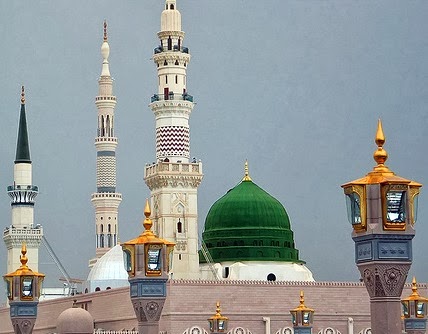بسم الله الرحمن الرحيم
Bismillahir Rahmanir Raheem "In the Name of God, the
Compassionate, the Merciful”
السَّلاَمُ عَلَيْكُمْ
وَرَحْمَةُ اللهِ وَبَرَكَاتُهُ
As salaam alaykum ramatullahi wa barakthu "May the peace of
Allah be upon you, and His mercy and blessings"
Dear friends,
Today I would like to introduce you about some important points
about Zakat-ul-Fitr.
Every Muslim is required to pay
Zakat-ul-Fitr at the conclusion of the month of Ramadan as a token of
thankfulness to God for having enabled him to observe fasts. Its purpose is to
purify those who fast from any indecent act or speech and to help the poor and needy.
This is a broad subject but normally below
details will be enough. If anybody has any doubt please comment or inform me by
E-mail.
Who
must pay Zakat-ul-Fitr
Zakat-ul-Fitr is incumbent on every free Muslim who possesses one Sa` of
dates or barley which is not needed as basic food for himself or his family for
the duration of one day and night. Every free Muslim must pay Zakat-ul-Fitr for
himself and to whom those who are in his obligation to feed and take care.
The jurists agree that Zakat-ul-Fitrr is due at the end of Ramadan. It is
due at the sunset of the night of breaking the fast, for this is when the fast
of Ramadan ends.
If a baby is born after sunset then Zakat-ul-Fitr is not obligatory for
the baby. If someone married a lady after sunset then it is not the obligation
of that husband to pay Zakath on her. If one convert Islam after sunset also
not obligatory to pay Zakat-ul-Fitr. No obligation to pay Zakath by owner on a servant
who is receiving salary or wage. Baby born before sunset of Ramadan by
prostitution it is mother’s responsibility to pay Zakath for that baby.
It is better to give after dawn of Eid day and before Eid prayer. It is
not permissible to delay giving Zakat-ul-Fitr after the day of `Eid (i.e. one
may give it up to the time of the `Eid prayer). However, there are some jurists
who think that it is permissible to delay giving it even after the `Eid prayer
but any delay is a sin.
Anyway, the founders of the four accepted Islamic legal schools agree that
Zakat-ul-Fitr is not nullified simply by failure to pay it on its due time. If
it is not paid before `Eid prayer, one is not exempt from it. It becomes a debt
payable even after death. The heirs must not distribute the deceased’s legacy
before payment of the deceased’s unpaid Zakat-ul-Fitr.
Most scholars believe that it is permissible to pay Zakat-ul-Fitr a day or
two before `Eid. Ibn `Umar reported that the Messenger, upon whom be peace,
ordered them to pay Zakat-ul-Fitr before the people went out to perform the
`Eid prayer. Nafi‘ reported that `Umar used to pay it a day or two before the
end of Ramadan
What
type of food can be given and permissible substitutes
It is permissible to give any kind of food as long as it is the main
staple in that particular region or the main food of the receiving person.
The amount of Zakat-ul-Fitr is one Sa` of main food of the receiving
person.
The
amount of Sa`
Sa` is a certain measure which equals 4 mudds (a mudd equals a handful of
an average man). The contemporary equivalent weights of Sa` differs according
to the stuff which is weighted. For example a Sa` of wheat equals 2176 grams, a
Sa` of rice is 2520 grams, a Sa` of beans equals 2250 grams etc.
So approximately 3.2liter or 2.800
Kg can be used as a measure for paying Zakat-ul-Fitr .
Payment in money
The Hanafis permitted the payment of Zakat-ul-Fitr in money. However, the
other three schools (Maliki, Shafiyi and Hambali) did not permit this. Their
argument is that the Prophet did not do so and hence its payment in money
contradicts the Sunnah of the Prophet.
So better is not to pay money as Zakat-ul-Fitr and pay only in the form of
food.
To whom it has to pay
1) The poor & the needy – these people may have some wealth, but not
enough to make up the nisab.
2) The destitute – such people have nothing other than the very basic
necessities; they are worse off than the poor
3) Those employed to collect the Zakath – this refers to those that
collect as well as distribute the Zakath appointed by Islamic government.
4) Muslim converts who are needy and poor
5) Those who are indebted, but unable to settle their debt.
6) Travelers who have run out of money and would therefore have no way of
reaching their final destination without help.
(Slaves on whom release letter wrote and Muslim fighters in the path of
Allahu are not prevailing now so that is not considered. No Zakath can be given
to non muslim or Ahlubaith)
Where has to pay
Where
he/she is staying when he/she knew it is Eid
Please include me in your
prayer.
ليست هناك تعليقات:
إرسال تعليق